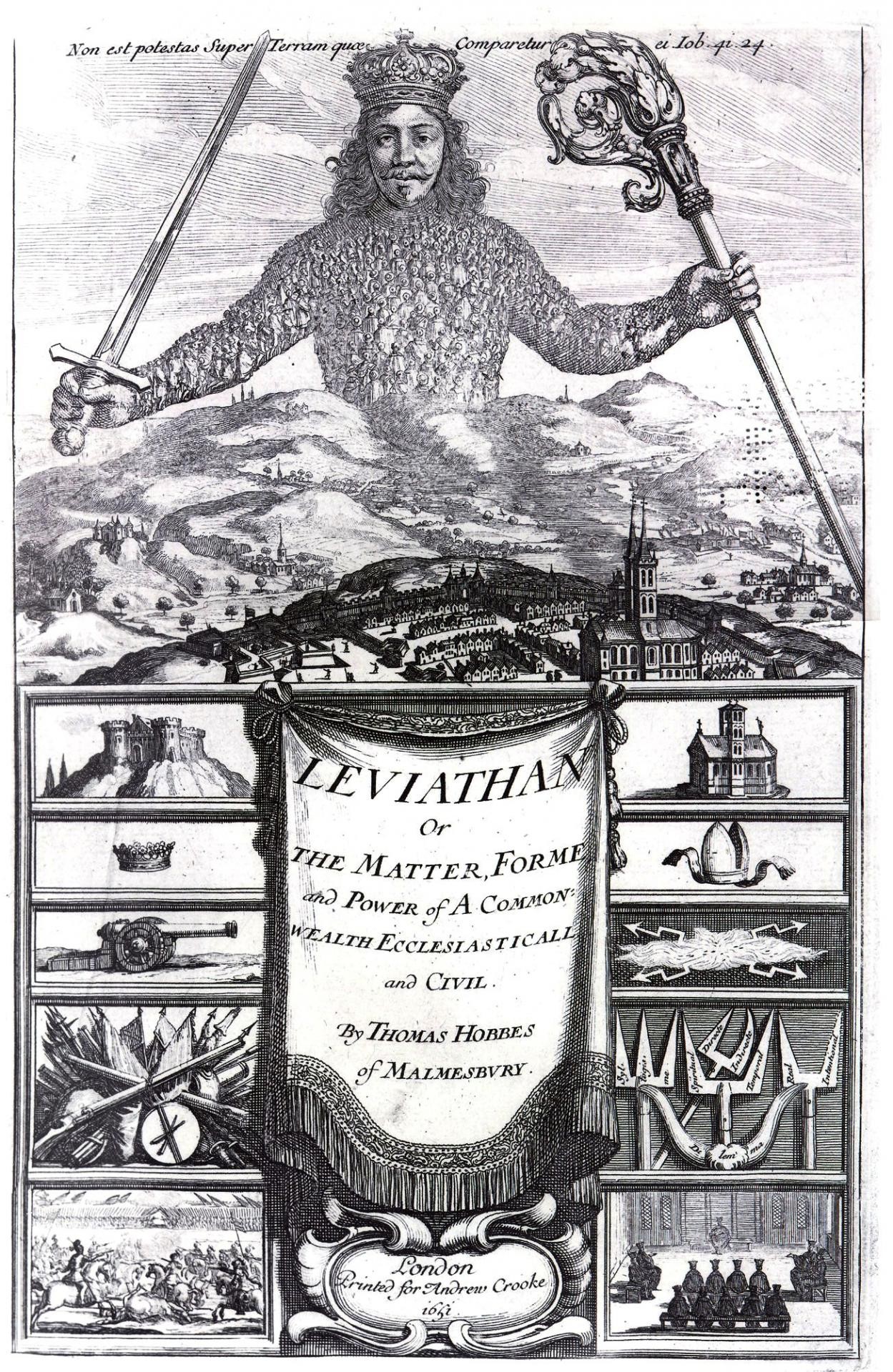Thomas Hobbes, Leviathan
Thomas Hobbes (1632 – 1704) was an English philosopher. He is most famous today for his political philosophy, outlined in his book Leviathan. Hobbes also translated Thucydides’ History of the Peloponnesian War into English—he was reading and responding to the same Ancient authors that we are today, in F&C.
Hobbes is classified as an “early modern” thinker, meaning that his ideas laid the foundation for modern Western philosophy after the Middle Ages. Some of what we will read seems familiar to us, but it was brand new and surprising when he wrote it. On the other hand, some of it seems strange, harsh, or old-fashioned. As you read, try to put yourself in Hobbes’s shoes. Why might one make the assumptions he does? Where does he agree and disagree with Plato, Aristotle, or Thucydides? Where is his evidence coming from? Think about the concepts of the many versus the few, and an implicit or social contract.
The word “leviathan” comes from the Hebrew Bible, where it is the name of a massive, powerful sea monster. In modern Hebrew it means “whale.” On the back of this sheet is the very elaborate frontispiece (or, cover/first page) of Leviathan. The Latin inscription means “There is no power on earth to be compared to him,” a quotation from the Book of Job. Notice that the big crowned man is made up of lots of little people. What are the images underneath him? Does this frontispiece shape how you read Leviathan?
